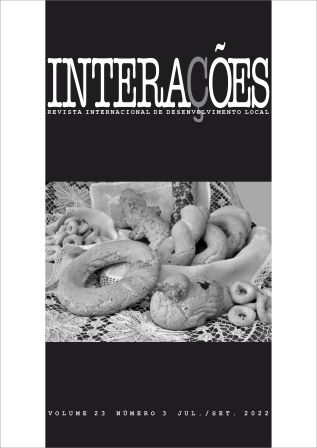Território e políticas públicas: um percurso de Educação Permanente
Resumo
O território tem sido um conceito cada vez mais valorizado nas políticas públicas, especialmente no campo da proteção social. O presente trabalho tem como objetivo analisar os sentidos do território para profissionais da média complexidade do Sistema Único de Assistência Social da cidade de Joinville, SC. A proposta de investigação, orientada pela pesquisa-intervenção, deu-se por meio de um percurso formativo mediado por oficinas estéticas, cuja característica é o desenvolvimento de atividades criadoras seguidas de grupo de discussão. Foram realizados cinco encontros, com duração de três horas cada um, e, no final do percurso, um grupo focal com os participantes. Tendo como conceitos norteadores as dimensões do território, nas atividades propostas para cada encontro, utilizamos o mapa do município em questão como um recurso metodológico, o qual se mostrou um instrumento potente para pensar sobre o território e suas especificidades. As informações produzidas pelo percurso foram analisadas a partir do método de análise de conteúdo, que gerou as seguintes categorias: sentidos do território e percurso da pesquisa-intervenção; encontro entre perspectivas conceituais e experiência com o território; e território e cidade: percepções (des)construídas na prática socioassistencial. A pesquisa tornou-se espaço de significação, pois o percurso possibilitou a produção de uma reflexão nos participantes a partir daquilo que emergiu entre esses sujeitos e a discussão sobre território, compreendendo-o como um dos conceitos fundamentais nas políticas públicas. Portanto encontro de pesquisa configurou-se como um ato significativo.
Downloads
Publicado
Como Citar
Edição
Seção
Licença
Copyright (c) 2022 Interações (Campo Grande)

Este trabalho está licenciado sob uma licença Creative Commons Attribution 4.0 International License.
Direitos Autorais para artigos publicados nesta revista são do autor, com direitos de primeira publicação para a revista. Em virtude de aparecerem nesta revista de acesso público, os artigos são de uso gratuito, com atribuições próprias, em aplicações educacionais e não-comerciais.


